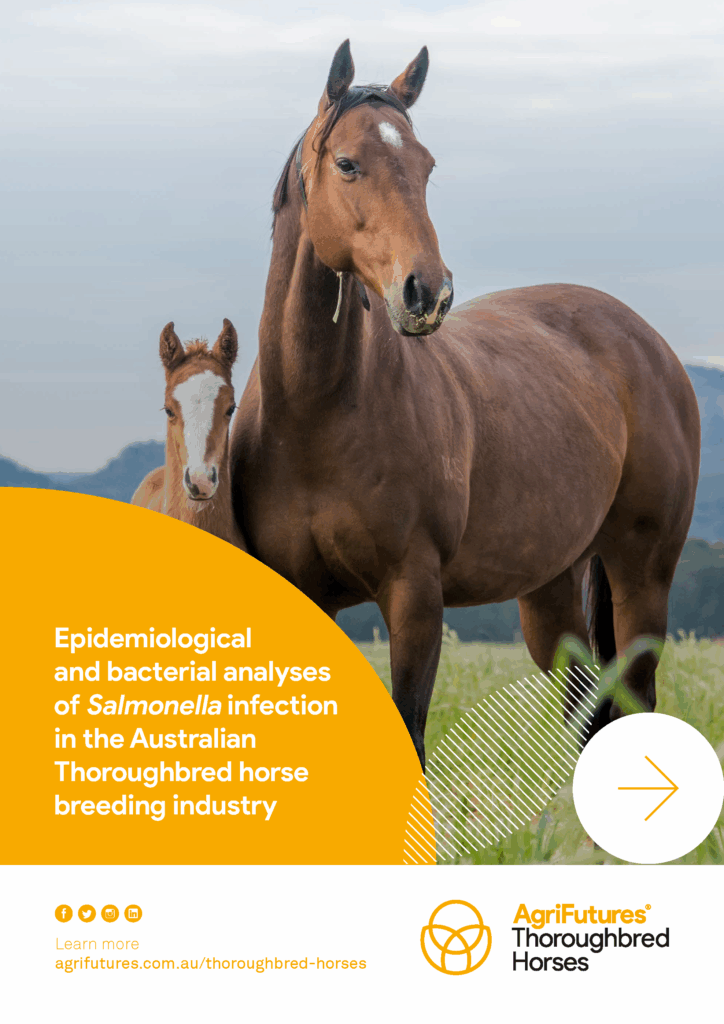Snapshot: Antimicrobial prescribing guidelines for horses
This document represents the first comprehensive resource providing detailed guidance on the management and treatment of common bacterial diseases in horses in Australia. Key highlights...
 THOROUGHBRED HORSES
THOROUGHBRED HORSES 
4 pages
Published: 27 Aug 2025
Download report PDF
DownloadSalmonella is an important intestinal infection of horses of all ages, and can cause colic, diarrhoea, generalised illness and death. Horses infected with Salmonella frequently need intensive treatment and outbreaks can cause major disruption to veterinary hospitals. Salmonella can also infect humans, causing significant illness. While Salmonella is a well-known and recognised pathogen, there is limited understanding of Salmonella infection of horses in Australia. This research project investigated the occurrence (prevalence) and factors associated with Salmonella in horses in veterinary hospitals and Thoroughbred stud farms and characteristics of Salmonella isolates (serotype and antibiotic sensitivity patterns).
The project found that the prevalence of Salmonella is very low on stud farms, indicating that healthy horses are unlikely to be infected. Conversely, the prevalence of Salmonella in hospitalised horses was 17-19% and several factors were predictive of infection, including colic surgery, fever, inappetence, antibiotic treatment and findings of systemic disease. These findings indicate that Salmonella is common in hospitalised horses, infection control practices are important and, where possible, risk of infection could be reduced by addressing predictive factors. Salmonella isolates were frequently resistant to multiple antibiotics, with implications for both the health of horses and humans when antibiotics are required in the management of Salmonella.